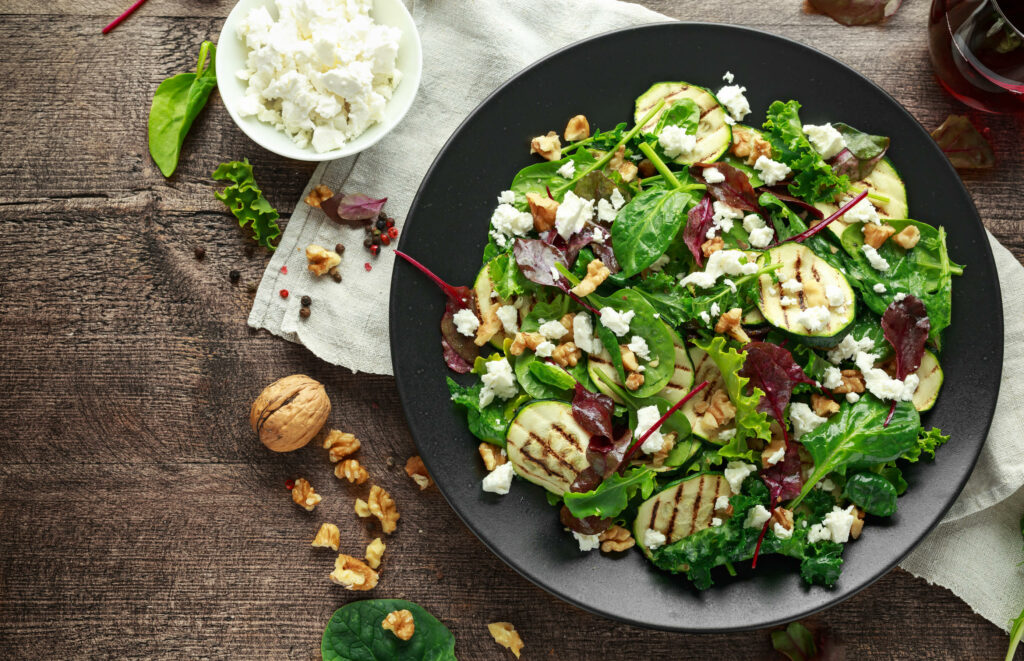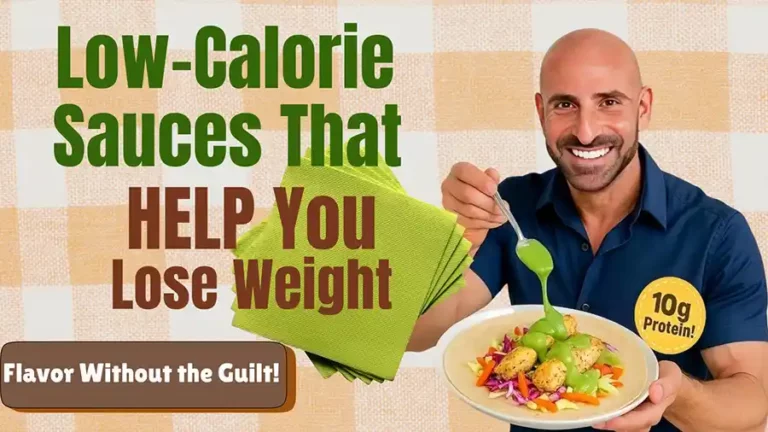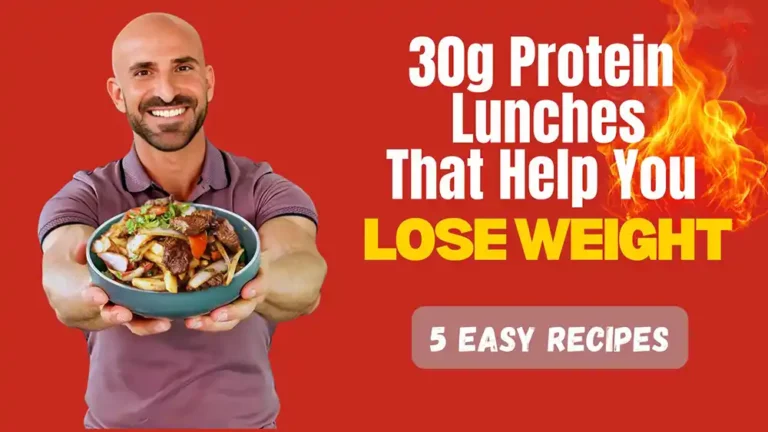
Are you gaining weight on a plant-based diet and wondering why? Here are 5 common mistakes people make when going vegan or vegetarian, and what to do instead.
I’ve covered plant-based eating at length in the past, but wanted to clarify for the final blog of this series that plant-based does not always mean vegan or vegetarian. Plant-based meals that include animal products can absolutely help with weight loss when all food groups are balanced. But unfortunately, gaining weight on a plant-based diet is more common than you may think.
Many people turn to a vegan or vegetarian diet for weight loss when either nothing else works or they see it working for a friend. However, you may have already adopted a vegan or vegetarian diet and are actually experiencing weight gain. Or this may be a weight loss route you are considering. There are some common mistakes often made that you should be aware of if you don’t want to end up even worse off on your weight loss journey than you began.
5 Common Reasons for Gaining Weight on a Plant-Based Diet
- You’re focusing on high-calorie carbohydrates
- You aren’t eating enough protein
- You’re a junk vegan or vegetarian
- You aren’t controlling your portions
- You’re not getting enough important nutrients
Keep reading for more about each one, and simple changes you can make to avoid weight gain when going vegan or vegetarian.
Reason #1: You’re Focusing on High-Calorie Carbohydrates
It’s still possible to have a bagel with a soy Frappuccino in the morning, pizza with vegan cheese for lunch and a giant bowl of pasta with cheese-free pesto and still be living a meat-free life! However, unless you’re prepping for a 10,000 meter race in the Olympics, that pattern of eating is going to cause a pattern of weight gain in a hurry.
This isn’t because carbs cause weight gain. No, carbs aren’t the enemy. In fact, plant-based diets whether they are vegan or include animal products, embrace whole-grain carbohydrates. And, let me let you in on a secret, vegetables and fruits are carbs too. However, even though most foods that fit into a vegan or vegetarian diet are carbs, carbs shouldn’t be what dominate your every meal.
Reason #2: You Aren’t Eating Enough Protein
One of the biggest challenges in a meat-free diet is getting in enough protein. A bigger challenge is getting in a protein source that isn’t also calorie-dense. Beans and peanut butter are two of the most common foods I see vegans use as protein sources. However, to get the recommended 20 grams of protein per meal, you’d have to eat 300 calories in beans and a whopping 500 calories of peanut butter…and that doesn’t count the calories of whatever foods you’re having with them. By contrast, 20 grams of protein from shrimp or chicken are only 100 and 150 calories respectively.
But why is protein even important? It’s important because, as mentioned above, meat-free diets can be very carb-dominant if not planned correctly. While carbs definitely have their place, they don’t hang out in the stomach long and you’ll end up eyeing those vegan snickerdoodles not soon after a full meal.
Protein, on the other hand, will keep you fuller for longer and prevent overeating. I recommend including plant proteins in meals like tofu, beans or lentils where you can, but snacking on protein-dense foods like wheat crackers with peanut butter and a glass of soy milk or even supplementing your meals with a vegan protein shake on the side.
Reason #3: You’re a Junk Vegan or Vegetarian
With the vegan craze spreading like wildfire, plant-based meats and desserts are everywhere to be found from Impossible burgers to vegan mayo to vegan doughnuts. However, just because these foods are plant-based does not mean you can include them in your diet whenever you want. Just like everyone else, non-meat eaters should enjoy treats and desserts in moderation, regardless of if they are plant-based or not. Junk food made from plants is still junk food.
The bottom line is these foods can still contain added sugars, processed ingredient and additives and lack actual vitamins and minerals. When you start to choose these foods too often, your health and weight can suffer. My advice is to not make the mistake of forgetting about the “plant” part of “plant-based”! Fruits and vegetables will always be a better choice than processed vegan substitutes, so don’t forget about including these in some good old-fashioned home cooking. Get a good vegetarian cookbook or do some research to find creative ways to make homemade and healthful meatless recipes.
Reason #4: You Aren’t Controlling Your Portions
Just because vegan options like bagels, starchy vegetables, seeds and nut butters are perceived as “good for you,” many people think they can eat as much as they want. This can’t be further from the truth, no matter what foods you choose to eat or not eat, you should always be controlling how much of what you’re eating.
Eating more calories than your body needs will always result in weight gain no matter where that food is coming from. Plant fats like avocados, seeds, hummus and nut butters are big culprits of shooting up the daily calorie count. Yes, these foods are healthful, but it’s important to portion them out to avoid overeating. Side note: alcohol is meat-free too.
Reason #5: You’re Not Getting Enough Important Nutrients
When you cut out animal products, without careful planning in your diet, you could put yourself at risk of nutrient deficiencies. Nutrients like iron and B-12 are found readily in animal products, but can be lacking in a vegan or vegetarian diet. Not enough iron and B-12 could cause fatigue and low energy levels which can lead to less exercising and a lower metabolism. This can make it more difficult for you to manage your weight.
The bottom line? If you do decide to adopt a vegan or vegetarian diet, planning and structuring your meals correctly is critical. This helps to ensure that you’re balancing your meals with the appropriate ratio of macronutrients, you’re getting all the vitamins your body needs and you aren’t indulging too often in calorie-dense plant-based foods.
Diving into this way of eating for weight loss without guidance can make it very difficult to come out victorious, so seek out a nutrition professional to help you manage any diet change! Make sure to keep these common reasons for gaining weight on a plant-based diet in mind. And if you need extra guidance or want an expert opinion with a customized weight loss plan, take a look at my weight loss program.





